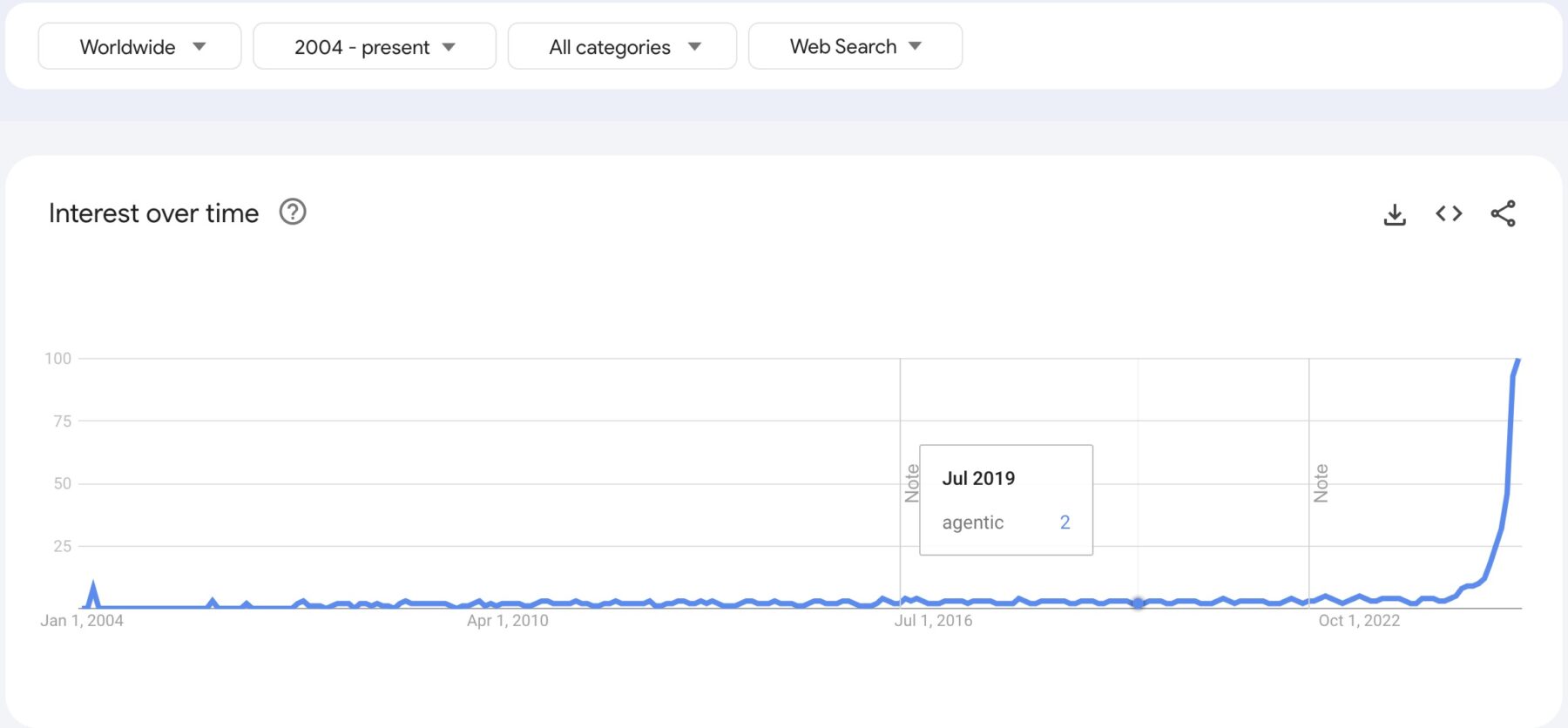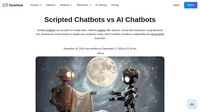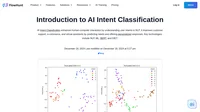New trends in AI, such as the development of AI agents and AI crews, are changing the way technology is used. These trends offer solutions to challenges that were once thought impossible. AI agents simplify processes by automating repetitive tasks, which allows people to focus on more strategic and creative work. At the same time, AI crews bring a new approach by enabling collaborative AI systems to handle complex problems, such as urban development, environmental modeling, and personalized healthcare.
Search Traffic Trends Analysis

Search trends for Artificial Intelligence (AI) and related topics have shown steady growth over the years. This indicates increased global interest and adoption of AI technologies.
In recent years, “AI” has consistently ranked high in search traffic. This is due to its wide range of applications in industries like healthcare, finance, and education. More specific terms, such as “AI agent” and “AI crew,” are also gaining attention as advancements in AI continue to expand its uses.
Comparison of ‘AI,’ ‘AI Agent,’ and ‘AI Crew’
A comparison of search trends shows distinct patterns. The term “AI” leads in search traffic because it has broad applications and is commonly used in various contexts. On the other hand, “AI agent” has seen significant growth in searches, especially since 2023. This increase is tied to the adoption of AI agents by businesses and developers. These agents are used for automation and specific tasks, like virtual assistants and recommendation systems, which are now key components of digital systems.
The term “AI crew” is a newer but growing trend. Searches for AI crews have risen in 2024-2025, reflecting interest in collaborative AI systems. These systems are designed to solve complex, multi-layered problems. This trend mirrors industry demand for integrated solutions in fields like logistics, healthcare, and urban planning.
The Future of AI: 2025 and Beyond
Artificial Intelligence is advancing rapidly, and 2025 is expected to be a turning point for AI agents. These autonomous systems are designed to perform tasks with minimal human input, and they are predicted to significantly shape the AI industry in the near future. According to reports from industry experts, 2025 will be marked as the “year of profitability” for AI technologies, with AI agents being central to this shift.
AI agents use machine learning, natural language processing (NLP), and step-by-step reasoning to automate complex processes. OpenAI has emphasized their potential to transform both back-office operations and customer-facing tasks. These systems will take on responsibilities like scheduling, financial forecasting, and customer support with levels of efficiency that go beyond human performance.
The economic influence of AI agents is considerable. PwC projects that by 2030, these technologies could add between $2.6 trillion and $4.4 trillion to the global GDP. In 2025, the adoption of AI agents is likely to spread across industries such as finance, healthcare, and retail. Their ability to increase productivity, cut costs, and simplify operations will drive this change. Beyond improving their capabilities, businesses will also shift their focus from simply growing revenue to prioritizing profitability, as they recognize the cost-saving benefits of AI agents.
The Rise of AI Crews is predicted in 2026
While 2025 will focus on AI agents, 2026 will introduce AI crews—systems that combine multiple AI agents to solve more complex problems. Unlike single agents, AI crews work together as unified teams, sharing data and coordinating tasks to achieve larger goals.
AI crews are ideal for fields requiring complex problem-solving, such as logistics, urban planning, and healthcare. For example, in smart cities, AI crews can manage traffic, energy use, and public safety in real-time, creating more efficient urban systems. In healthcare, they can oversee diagnostics, treatment plans, and patient monitoring, offering a more comprehensive approach to medical care.
The development of AI crews matches the growing demand for systems capable of managing interconnected challenges. Using distributed computing, edge technologies, and real-time data analytics, AI crews will transform workflows across various industries. Their ability to adapt to changing conditions and make collaborative decisions will drive innovation in 2026 and beyond.
What is the difference between an AI agent and an AI crew?
AI agents are systems created to complete specific tasks independently. They use decision-making processes, often supported by large language models (LLMs), to interact with their environment and perform tasks without human input. For example, an AI agent might handle customer support by interpreting user questions and giving accurate answers.
In contrast, AI crews consist of multiple AI agents working together in a coordinated, role-based system to solve more complex problems. In this setup, each agent has a specific role with defined skills and objectives. These agents communicate and divide tasks among themselves, similar to how a real-life team operates. For example, in an AI-driven logistics operation, one agent might manage inventory while another plans delivery routes.
Can AI agents and crews work together?
Yes, AI agents and crews can collaborate effectively. Individual AI agents can take on specific tasks within an AI crew, while the crew oversees the overall process. This combination takes advantage of both the independence of single agents and the teamwork capabilities of AI crews.
The Power of Agentic AI and Multi-Agent Systems in Workflow Automation
Discover how Agentic AI & multi-agent systems revolutionize workflow automation with intelligence, adaptability & efficiency. Explore now!
Scripted Chatbots vs AI Chatbots
Explore the difference between scripted and AI chatbots to choose the best fit for your needs. Discover their unique advantages today!
Introduction to AI Intent Classification
Discover how AI Intent Classification enhances interactions, boosts user satisfaction, and streamlines business operations across various sectors.




